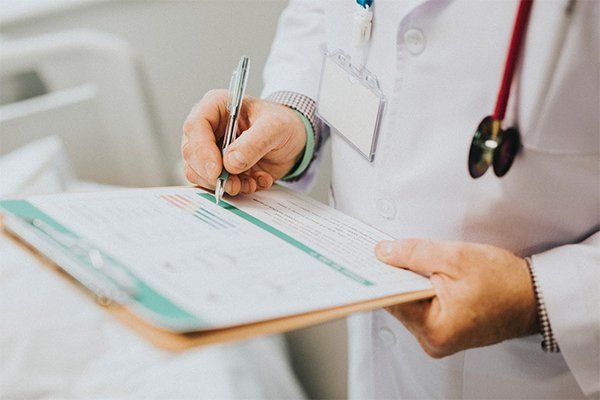A Review of Peptic Ulcers: Causes, Symptoms, and Treatments

Digestive system disorders have become a common issue for many people. When you experience any unusual signs that indicate digestive system issues, visit a gastroenterologist for diagnosis. Early diagnosis can help you identify the underlying cause of this problem. Additionally, your doctor may help you treat this issue before it becomes complicated.
This article highlights four signs you need to visit a gastroenterologist.
1. Frequent Heartburn
As the name suggests, heartburn is a burning sensation in the mid-upper abdomen when the acid in your stomach backs up into your esophagus, a tube that links your mouth and stomach.
Many people experience heartburn after eating spicy food. This issue usually goes away on its own or with the help of over-the-counter treatments. However, if you experience this issue for more than a week or if it refuses to go away after taking over-the-counter medications, you could have gastroesophageal reflux disease (GERD).
GERD is a condition that occurs when your stomach acid affects the lining of your esophagus. This condition normally occurs when a person is overweight or smokes too much. Women who are pregnant are also likely to experience this problem.
Once you experience this issue, seek professional help. Your doctor will first examine your upper digestive tract, using an endoscope to determine the severity of the issue. If the problem is mild, your doctor will give you medication. However, if the problem has gone too far, your doctor may advocate for surgery.
2. Lactose Intolerance
Lactose is a natural sugar in milk. When you take dairy products like yogurt and cheese, your body will produce a protein commonly known as lactase to help you break down lactose.
However, your body may sometimes fail to produce enough lactase to break down lactose, a condition commonly known as lactose intolerance. As a result, you may have difficulties digesting dairy products. When your body fails to break down lactose, you may experience diarrhea, bloating, belly pain, and stomach upsets.
If you exhibit these symptoms shortly after taking a dairy product, visit a gastroenterologist. Your doctor will use the Hydrogen breath test to diagnose lactose intolerance and give you proper medication. After diagnosis, your doctor may advise you to take dietary supplements or ask you to change your diet.
3. Rectal Bleeding
Rectal bleeding is not common, and you should never ignore this sign. Most times, you'll see this blood on your toilet paper, on your stool, or in the toilet. However, sometimes, you may not observe the blood itself. If your stool suddenly becomes sticky and black, you may have rectal bleeding.
The major cause of rectal bleeding is hemorrhoids. Hemorrhoids are simply swollen veins in your rectum (the lower part of your large intestines). These swellings can occur inside your rectum or on the skin around your anus.
Other causes of rectal bleeding include polyps, anal fissures, mass lesions, and inflammatory bowel disease.
4. Difficulty Swallowing
Sometimes, you may experience difficulty swallowing solid food, a condition commonly known as dysphagia. If you leave this problem untreated for a long time, the symptoms may worsen, and you may even find it difficult to swallow water.
Dysphagia occurs due to several reasons. First, the issue could be weak esophageal muscles. Additionally, if your esophagus gets damaged due to acid reflux, swallowing may be difficult. Other factors that may cause dysphagia include esophageal mass lesions and strictures.
Digestive system disorders can significantly affect your life. If you suspect any digestive system issues, do not hesitate to seek medical assistance from a certified gastroenterologist. To get the best services, contact Kentuckiana Gastroenterology & Paramount Surgery Center.

















